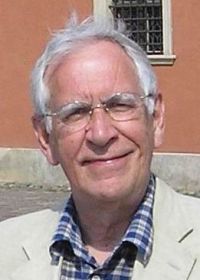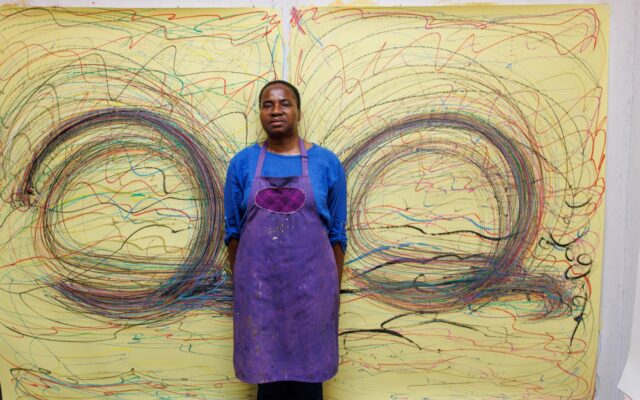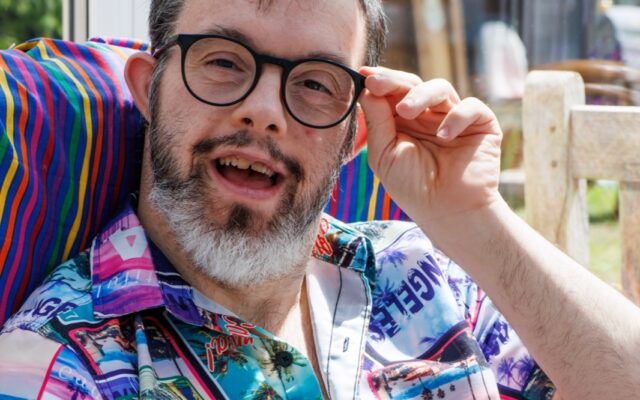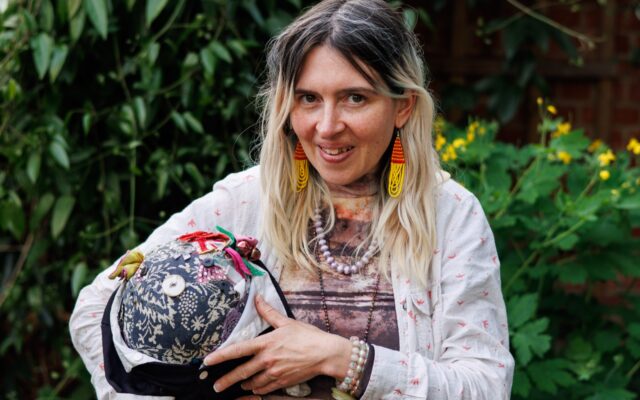 David Towell has worked to promote inclusion education internationally ‘because, if we get that right, we’re more likely to get that sense of community and people being valued’
David Towell has worked to promote inclusion education internationally ‘because, if we get that right, we’re more likely to get that sense of community and people being valued’
A long fight for ordinary lives
A radical publication led to campaigns to move people with learning disabilities out of institutions and into ‘ordinary houses in ordinary streets’. David Towell, one of the authors of An Ordinary Life, tells Sean Kelly about how a family member inspired his life’s work
David Towell starts his story with three critical days that have driven the story of his life for the following 74 years. On 8 May 1945, the Second World War ended. The following day, Towell’s older sister Pat, who was profoundly disabled, was sent away into care; that was what people did in those times. On 10 May, Towell was born.
We sit in his north London flat, where black and white photos of his parents and Pat are on display. Seeing the images every day makes sure he does not forget his sense of purpose. “Families never give up,” he says.
With his sister, he says “We had this deal – although she didn’t use words, so the deal was a bit one-sided – that I would do what I could to help her and, learning from her experience, others in her situation.” Characteristically perhaps, the chapter he wrote about their lives in Brian Rix’s book All About Us (Rix, 2006) is called ‘Brothers and sisters as change agents’.
Sadly, Pat died seven years ago now but he says: “I am still working for Pat really, and people like Pat. That’s what keeps me going.”
Postwar revolutionaries
One of the first children born after the war, Towell grew up in a rapidly changing world. His parents were socialists and deeply committed to making things better. Towell’s father was the leader of Feltham Council and very proud of developing 3,500 new homes for people who had previously lived in slums. (Many years later, Pat left institutional care to share an ordinary house only a couple of miles from Frank Towell Court, the block of flats commemorating their father’s contribution.)
“The new welfare state gave me every chance to make something of myself and be useful,” says Towell, who pauses before adding: “I am still trying to be useful.”
I first heard of Towell as one of the authors of An Ordinary Life (KingÕs Fund, 1980). Prompted by scandals in big institutions, it was the first of a series of papers and books in which he and his colleagues promoted the idea that people with learning disabilities could live as everyone else did. It was a shocking idea for many people at the time. It was also a call to revolution and, as a young support worker, I was profoundly influenced by the ideas in the publication.
Towell laughs several times as I tell him how fervent a young revolutionary I was with my colleagues in those days as we pushed for people to move into their own homes. With the certainty of youth, I had probably only read the title page but that in itself formed an clear demand for change.He agrees: “Every revolution needs a powerful slogan.”
This one began with journalist Ann Shearer, one of Towell’s coauthors. She wrote about people with learning disabilities living in ordinary houses in ordinary streets alongside mostly people who were not disabled, which was condensed into ‘an ordinary life’. It was a powerful vision expressed in plain language that was perhaps easier to grasp than conceptions such as ‘social role valorisation’ or ‘normalisation’.
In 1988, the King’s Fund published his book An Ordinary Life in Practice (Towell, 1988), “which claimed we were doing it,” he says wryly.
Of course, many people were doing it and, as Towell says, it had become a social movement. He accepts he had a leading role but points out that others did too: “I don’t think there were any superstars. It was a movement with many leaders – in fact hundreds as this movement developed.”
Towell acknowledges that some of the conditions of the time helped. The institutions already existed “so we knew what we didn’t want” and they used large amounts of resources that could be freed up to pay for alternatives. The NHS was nationalised and controlled all these resources, and the King’s Fund was well placed to act as a central agency coordinating a coalition of agencies pushing for change.
In 1991, he took a sabbatical to work in what was then Czechoslovakia with the Health Ministry on deinstitutionalisation and integration. He also began work in Canada, which is continuing, on inclusive education. Towell says schools are the starting point for inclusion “because, if we get that right, we’re more likely to get that sense of community and people being valued”.
Official recognition Some 20 years after An Ordinary Life was published, in 2001, the government published Valuing People. “Valuing People is really a summary of the ordinary life programme written in government-speak,” says Towell.
Towell left full-time employment in 2003. “I have a pension but I am not retired,” he says.
He set up the Centre for Inclusive Futures as an umbrella for his future work. One part of that continuing work has been to support two long-running peer learning groups (called learning sets) made up of chief executives of what he calls “vision-led provider organisations”. There are two groups, one of eight chief executives of larger organisations and another of eight chief executives of much smaller, more locally based organisations.
I first met Towell as a member of the latter group through my work at the Elfrida Society and found his ability to analyse a group discussion and draw out shared underlying threads to be deeply impressive. The first time it was “jaw dropping”, I tell him. His response is typically modest: “Well, I had a lot of practice.”
He is unequivocal that supporting providers is the best way to get the real change in the world that people with learning disabilities need. However, he recognises the push for change from both pressure groups like Learning Disability England, which he helped set up, and the powerful new networks of parents with children in assessment and treatment units. “But the other main source of continuity with the values and efforts at making things work are the vision-driven provider organisations. So, actually, I do think that the key resource to moving things is the leadership of these organisations and, by proxy, the great supporters that they employ.”
Going global
In recent years, TowellÕs work has increasingly been international. He worked with Inclusion International as they contributed to drafting the UN Convention on the Rights of Persons with Disabilities, which he describes as “ordinary life at the global level”. He accepts that not enough people in the UK pay attention to UN conventions but in many other places they are very important.
He has been working in Puebla in Mexico where the slogan is ‘Making Puebla better for everybody through including people with disabilities’. Soon after this interview, he was off on his 24th trip to Colombia as well as to Bolivia and Peru to work on advancing inclusive education. He has published seven papers in Spanish, despite not speaking the language (he is having lessons), but says facilitation skills are essentially the same, including “creating good spaces for reflection on current challenges, helping people be explicit about their values and then helping them to explore what they can do to advance them in their situation”. And always asking: “What more is possible?”
The phrase ‘What more is possible?’ is taken from a pamphlet by Towell’s old friend John O’Brien, whose book with Beth Mount, Pathfinders (O’Brien, 2015), is a recent touchstone for him. It describes in detail people working for social inclusion who are simultaneously making things better for the whole community.
The challenge now, he says, is to find out “what is the big agenda and how do we become part of it?” He believes climate change is the biggest challenge facing the world. To address it, he says “we all need to relate to each other differently” and that, in turn, necessitates developing more inclusive societies. He is working on a project about sustainability and inclusion for the Centre for Welfare Reform.
Reflecting back on An Ordinary Life, Towell says that for 20 years the focus was on closing the old institutions. “But we can see in hindsight that we didn’t stop new ones arising, especially in the private sector,” he says. Work to achieve equal citizenship will never be finished, he now believes. In closing, he draws from my own story, as one of the foot soldiers of deinstitutionalisation in the 1980s, and says that it shows that “we can change things from the bottom up when good people find both inspiration and a supportive network . We are not going to get much from the top down in the foreseeable future. But now we have more possibilities for connecting laterally.”
He wants a new social movement for the changes that are needed for people with learning disabilities in the 2020s, looking to the school pupils striking for action on climate change: “Once they have sorted that out, we need them.”
David Towell’s writing can be accessed at: www.centreforwelfarereform.org/search/18105/
Sean Kelly was chief executive of the Elfrida Society from 2001 to 2012 and is now a freelance writer and photographer
References
Department of Health (2001) Valuing People – a New Strategy for Learning Disability for the 21st Century. http://tinyurl.com/naeskq3
King’s Fund (1980) An Ordinary Life: Comprehensive Locally-based Residential Services for Mentally Handicapped People.London:
King’s Fund O’Brien J, Mount B (2015) Pathfinders. People with Developmental Disabilities & Their Allies Building Communities That Work Better for Everybody. Inclusion Press, Toronto
Rix B, ed (2006) All About Us! The Story of People with a Learning Disability and Mencap. London: Mencap
Towell D (1988) An Ordinary Life in Practice: Developing Comprehensive Community-based Services for People with Learning Disabilities. London: the King’s Fund





